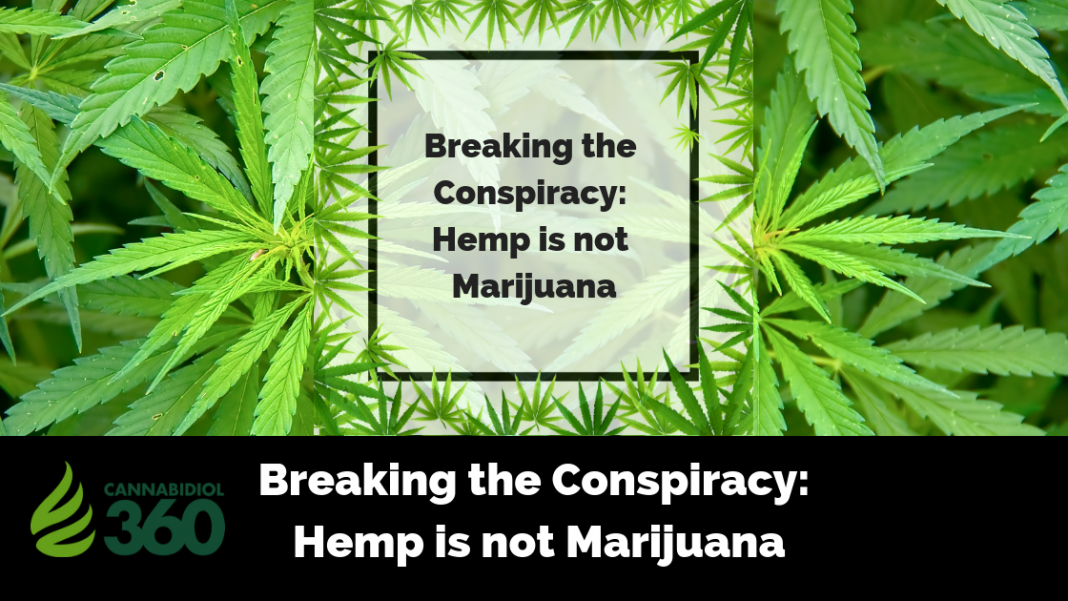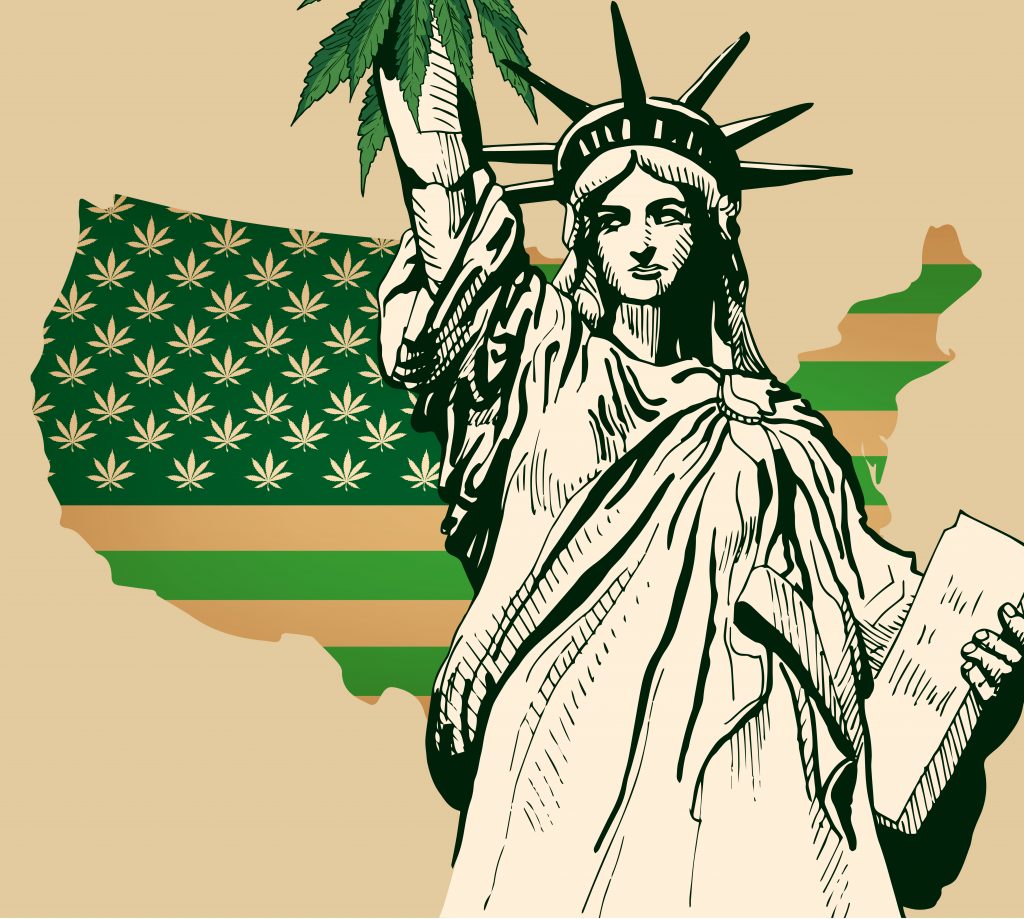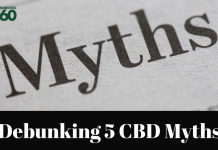
Hemp is not the same exact thing as marijuana. Overall, these 2 plants are far more different than they are similar. And, while the majority of Americans remain unaware that hemp is NOT marijuana, it is up to our industrial hemp industry as well as hemp advocates to make this information available.
Trace percentages of CBD are found to be much higher in hemp than in cannabis sativa (marijuana). Therefore, THC levels are naturally lower in hemp. So, there is a clear distinction between the Hemp plant and Marijuana, since THC is the compound responsible for creating an intoxicating effect, while CBD remains medicinal.
To be specific, there has been a requirement set in place by Federal Law via the “Farm Bill.” It clarifies that when cultivating the hemp plant, THC levels must not be greater than 0.3% among all crops being used within the industrial hemp industry.
For example, if a bureaucratic appointed agency, typically associated with a state’s Department of Agriculture, arrives at a hemp farm to test the THC levels of the hemp crops and the percentages are higher than 0.3%, those crops will be declared as a violation and rendered to be worthless.
This could cost a hemp farmer millions of dollars. Frankly, for anyone whose livelihood depends on farming cannabis, such a violation would be a nightmare.
Considering this, when people claim how the CBD industry is an unregulated “wild west” mess, they are not entirely correct in their depiction.
While many areas require improvements, still when regulators consistently follow through on enforcing the rules of their state’s hemp cultivation pilot and research programs, then the standards of the CBD industry become more comprehensive and precise.
This is why, in comparison to the psychoactive THC cannabinoid, we learn how the CBD compound is ultimately incapable of producing intoxication.
The non-psychoactive properties of CBD, affects brain receptors through more of a secondary, indirect transmission of maneuverability. As a result, CBD proves to be just as different as well as far more independent from THC as Hemp is to Marijuana.
Make no mistake, hemp is still a family member of the cannabis species. Thus, to simplify, just think of hemp as a distant cousin rather than a fraternal twin sibling.
Explaining Where CBD Resides
 Contrary to popular belief, hemp is not the same thing as marijuana. Now that the Hemp Plant has become liberated by the federal government, Americans are no longer prohibited from reaping the benefits of hemp.
Contrary to popular belief, hemp is not the same thing as marijuana. Now that the Hemp Plant has become liberated by the federal government, Americans are no longer prohibited from reaping the benefits of hemp.
Finally, Hemp has been given a chance to escape prohibition. Through one of the most contemporary pieces of legislation the U.S. Congress has passed, citizens can actively engage in a new opportunity that has the potential to drastically improve both our health and our wealth.
At the time hemp was first prohibited in the 1930s, people back then were unable to test the plants adequately enough to determine what exactly was causing the intoxicating effects.
Yet, nowadays, it is more often widely understood throughout the hemp and cannabis industries, how psychotropic, intoxicating effects can only be generated by just one out of 85+ known cannabinoids, that is, tetrahydrocannabinol (THC).
Hemp History

During the time, hemp prohibition was also embraced and initiated due to American Leadership failing to identify how vastly different the chemical structures were of hemp and cannabis.
Therefore, within the general public, the popular opinion of 1930s American citizenry were influenced by a propaganda campaign demonizing both Hemp and Marijuana.
Consequently, these 2 plants have been confused with being one in the same for nearly an entire century. In terms of realistic information, Hemp and Marijuana should never have been grouped together in the first place.
Overall, these 2 plants are far more different than they are similar and while the majority of Americans remain unaware that hemp is NOT marijuana, it is up to our industrial hemp industry as well as hemp advocates to make this information available to allow this distinction becomes well-known.
Before February 7, 2014, the U.S. has maintained a prohibition on the cultivation of hemp plants. Nonetheless, when President Obama signed the Agriculture Act of 2014 into law, the prohibition of hemp had officially become history.
The remaining incorrect perceptions about hemp persisting throughout mainstream America need to become properly adjusted through the communication of facts applied to educational efforts. This would undoubtedly improve a myriad of personal struggles and social conditions.
In light of the federal legislation reversing hemp prohibition, it is specifically listed under Subtitle F — Miscellaneous Provisions in Section 7606 of the Agricultural Act (H.R. 2642), which is titled Legitimacy of Industrial Hemp Research, that directly defines industrial hemp as distinct from marijuana.
The Farm Bill Section 7606 Legitimacy of Industrial Hemp Research essentially authorizes institutions of higher education or state department’s of agriculture in states that have legalized hemp cultivation to conduct research and closely regulate through pilot programs.
Hemp Research and Pilot Programs the federal government declares allow the states to decide the specifics in regulating how their state handled cultivation as well as any hemp based products.
From this, hemp cultivation has become a whole new industry for America to discover and embrace. This legislation allows states to move forward with their hemp industries if they choose to do so, which also allows states to decide to regulate and possibly prevent hemp cultivating.












